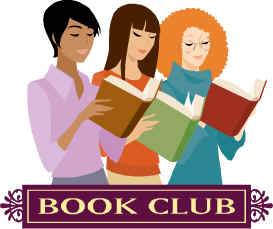Stolen
from his family by changelings, Henry Day is
given the name "Aniday" by the
ageless and magical beings, who replace him
with another child
who takes his place with his parents, a young
boy who possesses an extraordinary gift of
music.
Discussion Questions
- The
very first words out of Henry Day's mouth
are "Don't call me a fairy,"
and then he takes the reader on a
quasi-scientific account of the
differences between fairies, hobgoblins,
and other "sublunary spirits."
Yet Aniday and the rest of the
changelings refer to themselves as
faeries throughout the book. Why does
Henry insist on not being called a fairy?
In what other ways does Henry attempt to
distance himself from his prior life?
- Twins
and other twosomes figure predominantly
in the book: Henry and Aniday, Tess and
Speck, Big Oscar and Little Oscar, Edward
and Gustav, Mary and
Elizabeth
. Other characters form pairs: Luchog and
Smaolach, Kivi and Blomma, Onions and
Beka, George Knoll and Jimmy Cummings.
What is the significance of the doubles?
In what ways can Henry and Aniday be read
as two halves of one being? How does the
author, beyond using two alternating
narrators, play with the theme of
doubles?
- Rather
than each chapter echoing its
counterpart, the two stories run at
different speeds until the end of the
book. How does the author manage time in
the novel? Where in the narrative does he
relate the same incident from different
perspectives and in different sequences?
- When
Henry and his friends attempt to
synchronize their watches before looking
for little Oscar Love, not one of them
has the same time as the others. At other
points in the story, Henry or Aniday
forget the time of day or, in some cases,
what year it is. What does that say about
their place in time?
- In
chapter 35, Ruth Day says "I knew
all along, Henry." Similarly, Henry
dreams of Tess changing her form and
saying that she, too, knows the truth.
What does Henry think they know about
him?
- A
critical event in the novel is Bill Day's
suicide and Henry's muted reaction. What
did Bill come to understand about his
son? Why do you think Henry's mother,
Ruth Day, didn't react in a similar
manner?
- In
the poem "The Stolen Child" by
W.B. Yeats, the faeries attempt to entice
the child away "for the world's more
full of weeping than you can
understand." In what ways could the
fairyland in Donohue's novel be
considered better than the real world? In
what ways could it be considered worse?
- The
changeling legends, however, were
cautionary tales meant to illustrate the
dangers of creatures that many people
once believed in. And the changeling
legend, as McInnes points out in the
novel, were also horrifying explanations
for "failure to thrive,"
physical deformities, or mental illness
in children. Are Henry's and Aniday's
stories cautionary tales? What do you
make of the changeling who took the place
of young Gustav Ungerland and never said
another word?
- What
is the significance of music in Henry
Day's transformation? Does the final
concert offer Henry a chance at
redemption?
- What
is the significance of books in Aniday's
transformation? As Speck teaches Aniday
to read and write, does his understanding
of the world change? Is his memoir a
chance at redemption?
